
Game Development Engines: A Comprehensive Overview of Phaser.js
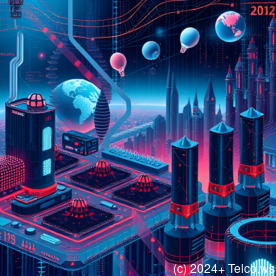

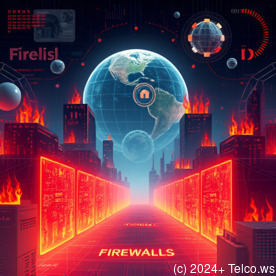

Understanding Game Development Engines
Game development engines serve as the backbone of the modern gaming industry, providing developers with integrated frameworks to craft immersive and engaging experiences. They encompass a wide variety of functionalities, such as graphics rendering, physics engines, sound design, user interface design, and scripting systems, all designed to streamline the game development process. By delivering a cohesive environment that balances both art and technology, these engines empower developers to focus on creativity rather than getting bogged down by low-level programming.
One of the most prominent examples of a game development engine is Phaser.js . This powerful open-source framework, developed in JavaScript, is particularly popular among developers crafting 2D games. With its extensive library of features, intuitive API, and supportive community, Phaser.js allows both novices and experts to bring their ideas to life with relative ease and efficiency. As the global gaming market rapidly expandsestimated to reach over $200 billion by 2023the significance of platforms like Phaser.js cannot be overstated. They not only enable new creators to enter the industry but also enhance the quality and variety of games available to players around the world.
Moreover, game development engines foster innovation by alleviating technical restrictions and enhancing collaboration between developers, designers, and artists. This collaborative environment encourages experimental approaches to game mechanics, narrative structures, and visual design, leading to groundbreaking creations that can reshape the gaming landscape. Ultimately, game development engines catalyze creativity, allowing developers to turn ambitious ideas into fully realized experiences that can delight and inspire players.




Core Aspects of Game Development Engines
Technological Advancements and Features
Phaser.js boasts an impressive suite of cutting-edge features tailored for contemporary game development needs. One of its standout characteristics is cross-platform functionality. This allows developers to publish games across diverse platformsincluding web browsers, mobile devices, and desktop applicationswithout complex modifications to the core codebase. This seamless adaptability results in broader market reach, enhancing the potential player base and improving overall profitability.
In addition to cross-platform capabilities, Phaser.js incorporates advanced physics engines such as Arcade Physics and Matter.js. These tools empower developers to create realistic movements, collisions, and interactions, thus elevating the gameplay experience. For instance, a platformer game could realistically simulate gravity, friction, and bounce dynamics, providing a more immersive experience that deeply engages players.
Phaser.js also features a comprehensive asset management pipeline. Developers can efficiently handle graphics, audio files, and animations without sacrificing performance. The engine utilizes HTML5 Canvas and WebGL rendering, allowing for visually stunning graphics and smooth animations, creating a captivating experience for players. Moreover, Phaser.js supports a variety of input methods, including touch gestures and keyboard controls, ensuring versatility in gameplay design across devices.
Furthermore, the vibrant Phaser.js community contributes a wealth of resources, including plugins, tutorials, and forums for discussion. This communal knowledge base is invaluable for developers at any level, providing insights and assistance that facilitate learning and problem-solving through shared experiences. Online platforms like GitHub and community forums enable developers to collaborate on projects, share assets, and even fork existing projects to create their own unique adaptations, fostering a spirit of cooperation and growth.




The Economic Perspective of Game Development Engines
When examining the economics of game development engines, the implications extend far beyond mere cost. Open-source engines, such as Phaser.js, dramatically reduce the financial barriers of entry for independent developers and small studios. With minimal upfront investment required, these tools empower passionate creators to conceptualize, develop, and monetize their games, significantly altering the traditional power dynamics within the gaming industry. The ability to publish games without incurring heavy licensing fees democratizes the game creation process, allowing a wider array of voices and stories to enter the market.
The rise of globalization and digital marketplaces has further expanded opportunities for developers. Platforms such as Steam, itch.io, and mobile app stores facilitate international distribution, enabling developers to reach consumers without the need for extensive middlemen. This not only provides greater financial returns for creators but also promotes diverse game experiences among players. As consumers increasingly seek out unique and localized gaming experiences, developers who harness engines like Phaser.js can tap into niche markets and build loyal audiences.
However, the indie game market comes with its unique challenges. The proliferation of games released continues to saturate the market, making differentiating ones product more critical than ever. Developers are tasked with understanding market trends, consumer preferences, and successful monetization strategies. Innovative approaches, such as bundling, freemium models, or engaging marketing campaigns, become essential for sustainable profitability. Balancing creativity with sound financial planning emerges as a required skill set for modern developers striving to succeed in this competitive landscape.
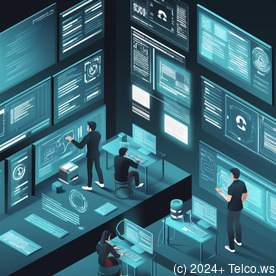


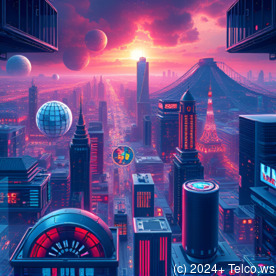
Political and Social Implications
From the political perspective, understanding the landscape of regulations and legal frameworks is critical for developers navigating the game industry. Compliance with intellectual property laws is essential to prevent copyright infringement and ensure the protection of original content. As digital distribution gains momentum, developers must continually keep abreast of copyright laws in different countries to safeguard their creative works while adhering to local regulations.
Moreover, government policiesespecially those concerning data protection and digital privacyare increasingly impacting game developers. Laws like the General Data Protection Regulation (GDPR) in the EU require developers to be meticulous about user data handling. Failing to comply can result in significant legal repercussions, making it important for developers to prioritize secure data management practices when designing their games.
Beyond legal considerations, the social impact of gaming can be profound. Game development engines help shape cultural narratives, influencing societal perceptions about various subjects. Developers are increasingly aware of the responsibility that comes with storytelling, striving to create experiences that foster empathy and awareness of social issues. Games about mental health, environmental conservation, and social justice have gained popularity, enabling players to engage with pressing real-world challenges through interactive means. The growing trend of developing games with meaningful narratives is a testament to the evolving role of gaming in society.




Environmental Considerations in Game Development
The intersection of gaming and environmental sustainability is an area of increasing interest within the industry. As developers harness engines like Phaser.js, they are presented with opportunities to address ecological concerns within both their design processes and narratives. By embracing digital distribution and minimizing physical game production, developers can significantly reduce their carbon footprints and resource consumption.
Additionally, games themselves serve as powerful platforms for raising awareness about environmental issues. A game developed with an emphasis on conservation can instill awareness in players and inspire them to take real-world action. For example, game mechanics could utilize in-game tasks that mirror real-life environmental efforts, reinforcing the importance of sustainability. This intersection between gameplay and social responsibility offers developers a meaningful avenue to connect with players on vital issues.
Several game developers have even initiated eco-friendly practices during development, such as committing to carbon-neutral hosting, reducing energy consumption during gaming sessions, and implementing eco-conscious budgeting for game design. As the gaming community becomes more aware of environmental impacts, developers who prioritize sustainability within their practices can appeal to eco-conscious consumers who value responsibility and ethics.




Legal Frameworks Affecting Game Development
A clear understanding of the legal landscape is vital for game developers embarking on their projects. Intellectual property protection is critical, as it shields the original ideas, characters, and art assets created by developers. Copyright, trademark, and patent laws are integral to ensuring that developers retain ownership of their content, thus empowering them to protect their creations from infringement by competitors.
Furthermore, developers must remain cognizant of user privacy laws, particularly as consumer data collection becomes the norm in gaming. Regulations like the GDPR necessitate that developers disclose how user data will be used, stored, and protected, as well as obtain informed consent from players. Adhering to such legal requirements not only safeguards against potential fines but fosters trust and credibility with the gaming audience, who are increasingly sensitive to privacy issues.
Navigating contract law is another critical aspect for developers, especially when collaborating with publishers, investors, or other creatives. Having a firm grasp of contract negotiations and understanding the implications of different clauses can help developers secure favorable agreements and avoid disputes. Legal consultancies focusing on intellectual property and contract law have seen an increased demand as the game development field expands.




Technological Innovations and Their Impact
The impact of technological advancement on game development engines is profound, continually shifting the landscape of what is possible in gaming. Tools like AI, machine learning, and augmented reality (AR) are being increasingly integrated into game engines, enabling developers to create dynamic and engaging gameplay experiences that evolve based on player behavior.
Phaser.js remains at the forefront of these technological innovations by allowing developers to utilize cutting-edge methods, such as procedural generation and adaptive learning, to enhance player engagement. For instance, integrating AI-driven non-playable characters (NPCs) that can learn from player interactions can lead to more challenging and personalized gaming encounters.
Additionally, advancements in graphics technology, including real-time ray tracing and sophisticated animation tools, facilitate the creation of visually stunning and highly realistic games. Phaser.js has adapted features to leverage modern rendering techniques, allowing developers to produce visually captivating worlds that enhance player immersion.
Moreover, ongoing community-driven development ensures that Phaser.js remains responsive to emerging trends and player expectations. The community often contributes suggestions and improvements, establishing a feedback loop between users and developers that drives innovation. Plug-ins and extensions continuously expand Phaser.js's capabilities, allowing developers to experiment with new ideas and create unique gaming experiences.




The Psychological Impact of Gaming
The psychological effects of gaming encompass a range of outcomes, often sparking debate among scholars and developers alike. Many studies suggest that engaging with games can foster positive mental health benefits by providing stress relief and a sense of accomplishment. Through challenging gameplay and achieving set objectives, players experience boosts in dopamine, contributing to improved mood and motivation.
Moreover, gaming can enhance social connections, allowing individuals to build friendships and support networks through multiplayer games and online communities. Games developed using engines like Phaser.js can encourage teamwork and communication, promoting collaboration among players and reinforcing social skills. These interactions can lead to significant social benefits for those who may find face-to-face communication challenging.
However, it remains crucial for developers to address the potential risks associated with gaming, such as addiction and detrimental behavioral effects. Games that are excessively rewarding or poorly designed can result in players spending an unhealthy amount of time in gameplay, leading to neglect of real-world responsibilities and social connections. As such, responsible game mechanics and ethical design should be carefully considered in the development process, ensuring that gaming remains a healthy activity.


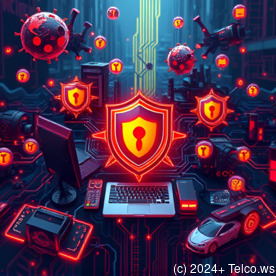

Conclusion: The Future of Game Development Engines
The landscape of game development engines, exemplified by Phaser.js, is poised for continuous evolution driven by technological advancements and emerging player expectations. While the economic opportunities presented by such engines are considerable, it is equally vital to engage with the broader socio-political, psychological, and environmental implications that accompany game development.
As more developers harness the capabilities of platforms like Phaser.js, there lies a remarkable opportunity to explore innovative narratives and themes that resonate with global audiences. By consciously creating games that address compelling social issues while remaining entertaining, developers are capable of leaving a lasting impact on players and fostering positive changes within society.
Ultimately, the future of game development engines appears bright, presenting pathways for creativity, exploration, and evolution. Those who utilize these powerful tools responsibly can shape the gaming realm into a more inclusive, insightful, and engaging space for all players. As the industry continues to grow, the role of developers will be paramount in determining how games can be leveraged to inspire, educate, and entertain.
Elevate Your Game Development Experience with Our Services!
If you are interested in leveraging the power of game development engines such as Phaser.js, our dedicated team is here to assist you every step of the way. Our specialized services start from just $900 , ensuring that you receive the thorough guidance and support you need in your game development journey. To explore our offerings further, feel free to contact us at www.telco.ws through email, phone, or our online form.
Ready to take the next step? Our tailored game development assistance is available for $900 . Please proceed to our Checkout Gateway and use our Payment Processor to pay the indicated amount. After completing your payment, please contact us with your receipt and your details so that we can arrange your personalized game development service. Thank you for considering our services!
